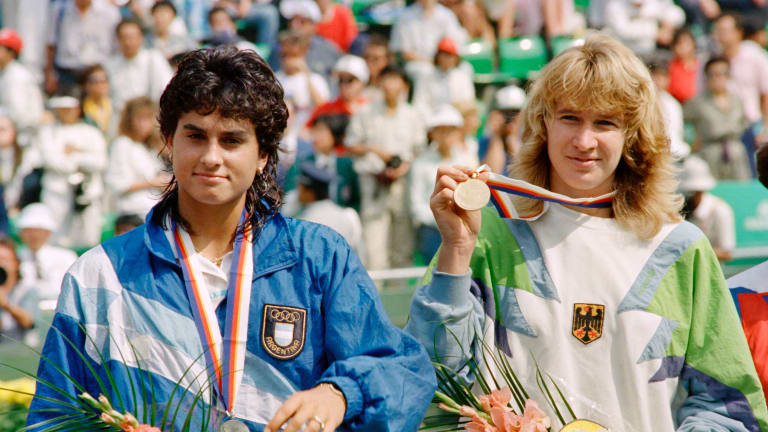Tennis Lessons
On This Day: Steffi Graf completes the "Golden Slam"
By Oct 01, 2021Tennis Lessons
What is an unforced error? A meditation on the tennis player's least favorite stat
By Dec 28, 2024Tennis Lessons
The Never-Ending Serve Quest: Top players shift focus towards improved deliveries
By Feb 27, 2024Tennis Lessons
Roger Federer in primetime: TC Plus Classics to revisit 20-time Slam champ's greatest matches
By Dec 19, 2023Tennis Lessons
Winning Ugly, revisited: Brad Gilbert’s ethos returns with Coco Gauff Slam triumph
By Sep 30, 2023Tennis Lessons
On 50th anniversary of Billie Jean King's 'Battle of the Sexes' win, a push to honor her in Congress
By Sep 20, 2023Tennis Lessons
Decades before the Battle of the Sexes, Billie Jean King and Bobby Riggs spun from the same cloth
By Sep 20, 2023Tennis Lessons
50 years later, ATP Wimbledon boycott remains major tipping point moment
By Jul 13, 2023Tennis Lessons
The case for the volley game: how it might be a way to play Novak Djokovic
By Feb 26, 2023Tennis Lessons
Tracy Austin, former world No. 1, turns 60
By Dec 12, 2022On This Day: Steffi Graf completes the "Golden Slam"
Of all Graf’s many achievements, none surpass what she accomplished on October 1, 1988.
Published Oct 01, 2021
Advertising

Steffi Graf defeated Gabriela Sabatini, 6-3, 6-3, to complete a Golden Slam at the 1988 Summer Games in Seoul, South Korea—tennis' return to the Olympic stage after 64 years.
© AFP via Getty Images